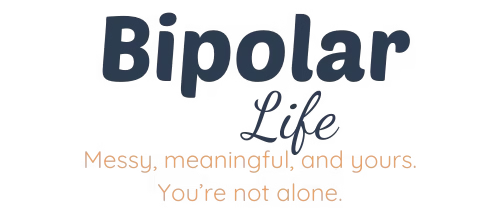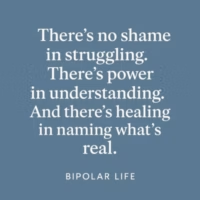How I Spot a Manic Episode Coming Before It Hits
Let me start by saying: I didn’t always see it coming. In fact, for years, mania snuck up on me like a caffeinated raccoon with a to-do list and a God complex. By the time I realized what was happening, I was halfway through reorganizing my closet by color and emotional frequency, researching how to start a non-profit in three countries, and insisting I didn’t need sleep because I felt “energized by the universe.”
These days, I’m better at noticing the signs before the mania fully crashes through the door. Not perfect—but better. And that little bit of awareness makes a huge difference. So here’s what I’ve learned about spotting a manic episode before it really hits.
1. My Sleep Gets Weird
It starts subtly. I stay up a little later, wake up feeling too refreshed, or just don’t feel tired at all. Other times, I don’t feel refreshed—but I still can’t get to sleep or stay asleep. The disruption isn’t always because of mania either. It can be due to work, kids’ games, stress, or anything else that shifts my usual sleep rhythm. I convince myself I’m finally getting by on less sleep like a superhuman productivity machine. But spoiler: I’m not. This is usually the first red flag.
2. Ideas Come Too Fast
Suddenly, I have a million brilliant ideas. They’re amazing. Life-changing. Urgent. I write them down furiously, I start a new planner, and launch into three projects at once. The new planner? It’s for the next two years—and it has goals I probably couldn’t complete in ten. But hey, I’ve got it all scheduled down to the hour. And these aren’t simple “clean the closet” goals either. These are complicated, multi-phase missions with 42 steps and 16 sub-actions per step. My brain isn’t just active—it’s racing like it’s in a Formula 1 car with no brakes.
3. Money Starts Talking (Loudly)
I find myself justifying questionable purchases. Do I need twelve types of houseplants? (Okay, that one is kind of normal everyday for me.) What about a $300 exercise program when I haven’t worked out in years? I start clicking “buy now” with suspicious ease. Financial impulsivity is one of my louder early signs. And the wild part? I know I’m being irresponsible. I start shifting things around—robbing Peter to pay Paul—believing something will magically cover the lack of money. Maybe I’ll win the lottery (I do think you have to buy a ticket first). Or maybe I’m suddenly going to sell thousands of dollars worth of digital printables I haven’t even made yet.
4. I Feel Unreasonably Confident
There’s confidence, and then there’s mania. I start giving TED Talk-level speeches in casual conversations. I am positive that I know the solution to the world’s problems. I am capable of great things. I’m suddenly convinced I can write a novel in a weekend or run a marathon with zero training. My sense of risk? Completely gone. Everything seems possible—too possible. Even if there is risk, it won’t affect me. I am unstoppable.
5. People Start Asking, “Are You Okay?”
This is a big one. My close friends and family know the signs, and if more than one person gently says, “You seem a little busy?” it’s time to pause. That outside perspective is often what nudges me to take a deeper look. Sometimes they don’t even ask about my being busy—they’ll ask about my stress level, or whether I really think I’m capable of taking on one more thing. My temper gets shorter, my ability to slow down gets longer, and my mood absolutely shifts. It’s not always a good shift—but with mania, change is inevitable.
What I Do When I Notice the Signs
I try to slow down. I check in with my therapist or doctor for medication management if I’m not currently in therapy. I take my meds like it’s a religious ritual. I cut back on stimulation—less caffeine, less screen time, more rest. I try to write things down so they don’t get lost in the chaos of mania. Sometimes, I even tell someone, which is terrifying but really, really helpful.
Recognizing the signs doesn’t always stop the episode, but it softens the landing. It gives me a chance to respond instead of react. I can ask for help and be more intentional with spending or sleeping—aka resting. And that’s progress.
If you’re learning to spot your own early signs, be gentle with yourself. It takes time, trial, and a whole lot of honesty. But you can get better at it—and that awareness is one of the best tools we have.
(And by the way, that to-do list? It had 1,000 items due yesterday—and another 1,000 that weren’t even happening for six months. Peak mania logic.)

